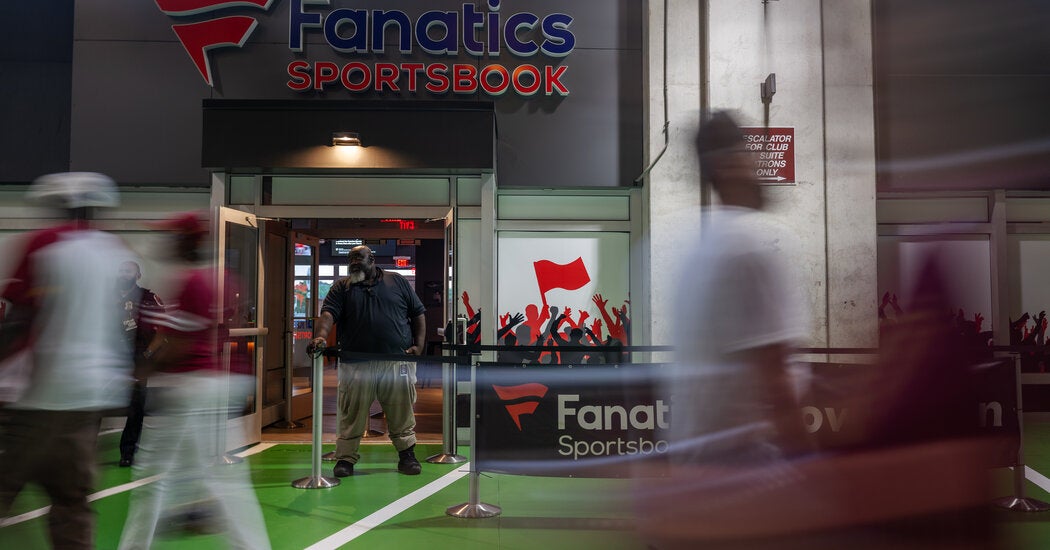
The doors to the sports book at FedEx Field opened two hours before the Washington Commanders’ first game of the N.F.L. regular season, drawing fans in with air-conditioning that blasted onto the stadium’s main concourse. Signs advertised a free Commanders hat for anyone who bet $20. A bouncer stood out front with a hand-held device that scanned IDs to check that patrons were 21 or older and not barred from gambling by state regulators.
A couple hundred cash bets had already been placed by the time Lawrence Harrod, 37, wandered in with his older brother shortly before kickoff. Harrod, who had already bet on four N.F.L. games through a mobile gambling app, was mostly interested in taking a break from the humidity. But as he looked around the 5,000-square-foot space, which had 21 self-service betting kiosks and three dozen television screens, he clearly saw the business opportunity the N.F.L. and its teams were seizing.
The FedEx Field sports book, run by the betting arm of the Fanatics sports apparel company, is the first (and for now, only) such venue operating inside an N.F.L. stadium. It is also a physical representation of the fine line the country’s pre-eminent sports league is attempting to walk on sports betting, both embracing it and policing it.
“I can understand why the N.F.L.’s stance is what it is, but it is a business,” Harrod said. “This is the future.”
Since a Supreme Court ruling in 2018 opened the door for more states to greenlight sports gambling, the N.F.L. and its teams have increasingly embraced betting as the league’s biggest area of revenue growth. The league’s partnerships with DraftKings, FanDuel and Caesars Entertainment are reportedly worth nearly $1 billion across five years. The Commanders’ own deals were visible beyond the sports book, via the blue FanDuel signs over both end zones, and the logo for the nearby MGM National Harbor casino on a stadium staircase.
But the legalization of gambling has had costs, too. This off-season the N.F.L. issued its most extensive set of penalties for violations of its gambling policy. The 10 players currently serving suspensions include seven who have been barred for at least this season because they bet on N.F.L. games. And aside from disclaimers under advertisements and the occasional public service announcement for the league’s campaign to encourage bettors to “play responsibly,” there has been little discussion of the potential effect on N.F.L. fans who are barraged during games with enticements like a free hat or a couple hundred dollars in bonus bets.
